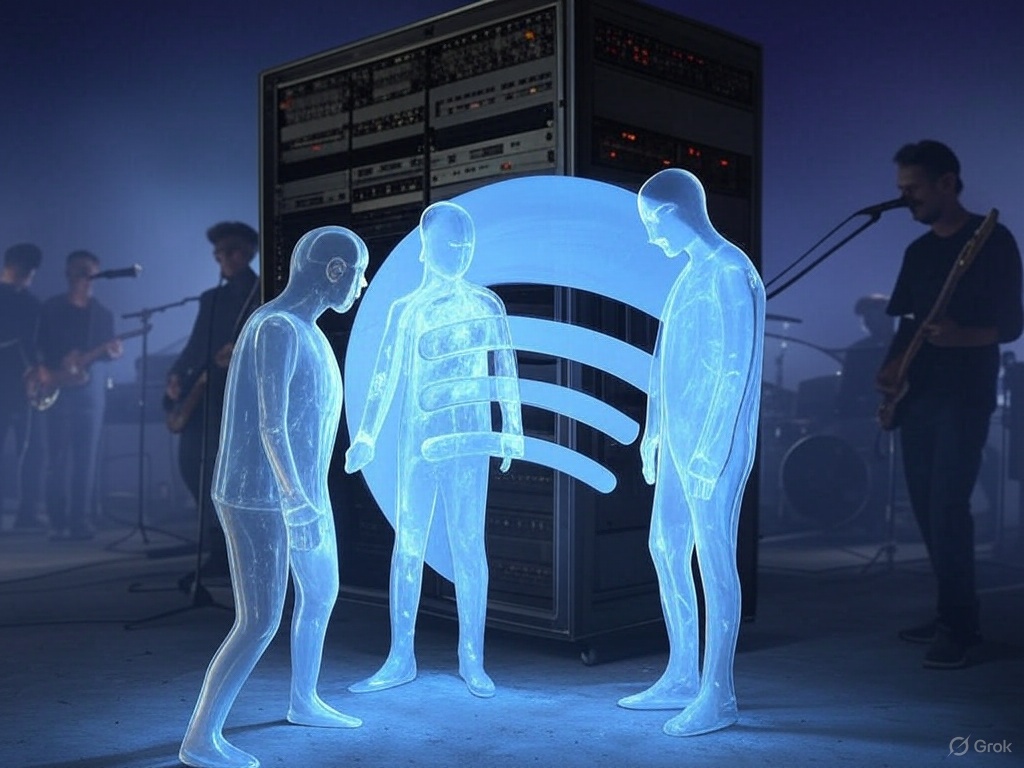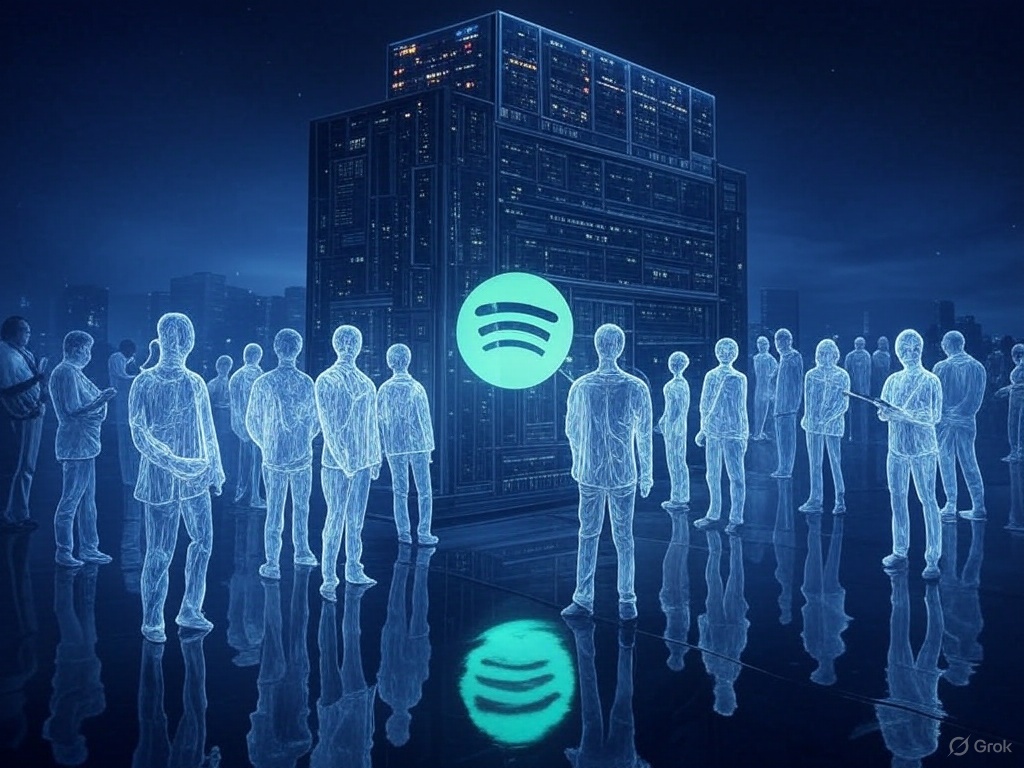In the sprawling digital soundscape of Spotify, playlists like Lo-Fi Hip Hop Beats, Ambient Chill, and their ilk have become cultural fixtures, soundtracking study sessions, coffee shop vibes, and late-night introspection.
But a closer look reveals an unsettling truth: these playlists aren’t always filled with the work of real, independent artists. Instead, they’re often padded with cheap, anonymous tracks designed to mimic authentic music while costing Spotify next to nothing.
 This is the story of how Spotify, a platform once hailed as a democratizing force for musicians, has become its own musician—churning out soulless “audio wallpaper” at the expense of genuine creators.
This is the story of how Spotify, a platform once hailed as a democratizing force for musicians, has become its own musician—churning out soulless “audio wallpaper” at the expense of genuine creators.
A recent investigation by Harper’s Magazine exposed Spotify’s Perfect Fit Content (PFC) program, a system that curates tracks engineered to blend seamlessly into its flagship playlists.
These tracks aren’t the heartfelt creations of struggling artists but rather generic soundscapes purchased at bargain rates from production studios like Epidemic Sound and Firefly Entertainment.
These companies specialize in creating “stock music” for ads, videos, and now, Spotify’s playlists. For Spotify, this is a masterclass in unit economics: low-cost content that keeps listeners streaming without the need to pay substantial royalties to real musicians.
 For artists, it’s a grim reminder of their place in the back of capitalism’s train.
For artists, it’s a grim reminder of their place in the back of capitalism’s train.
Rumors of Spotify’s “ghost musicians” first surfaced around 2017, when listeners noticed profiles with millions of streams but suspiciously vague biographies and stock-photo headshots.
An internal Spotify study from that time reportedly confirmed what many suspected: listeners engage with these playlists passively, treating them as background noise. If the music is little more than sonic furniture, why pay premium rates for it? Armed with this insight, Spotify leaned harder into sourcing cheap, functional tracks, prioritizing profit over artistry.
Spotify has remained tight-lipped about PFC, even as Harper’s reported internal dissent among employees who see the program as a betrayal of the platform’s original mission.
But with profits rolling in, those concerns have been brushed aside. The rise of artificial intelligence only deepens the problem. AI-generated tracks, which can replicate the same templated lo-fi or ambient vibes at an even lower cost, are flooding the platform.
 Fewer expenses on music acquisition mean fewer payouts to original creators, who are already scraping by on fractions of a cent per stream. This dynamic erodes the ability of artists to build meaningful connections with their audience, turning music into a faceless commodity.
Fewer expenses on music acquisition mean fewer payouts to original creators, who are already scraping by on fractions of a cent per stream. This dynamic erodes the ability of artists to build meaningful connections with their audience, turning music into a faceless commodity.
What’s emerging is a model where music is stripped of its human core, reduced to a mass-produced product devoid of authorship. Listeners, too, lose out, as the curated playlists they trust become less about discovery and more about algorithmic efficiency.
For a company that once positioned itself as a champion of artists, this feels like a profound failure—a betrayal of the promise to level the playing field for creators. At its heart, Spotify’s data-driven approach prioritizes metrics over meaning, sidelining the very musicians it claims to uplift.
Also read:
- People With Borderline Personality Disorder Prefer These Head-Scratching Types of Music
- What Are the Basics of Music Production?
If this trend continues, the music streaming landscape may soon face disruption. Just as Spotify challenged the old guard of the music industry, a new platform — one that genuinely prioritizes artists and authenticity — could rise to challenge Spotify and Apple Music.
The question is whether listeners, lulled by the comfort of endless playlists, will even notice the ghosts in the machine.






